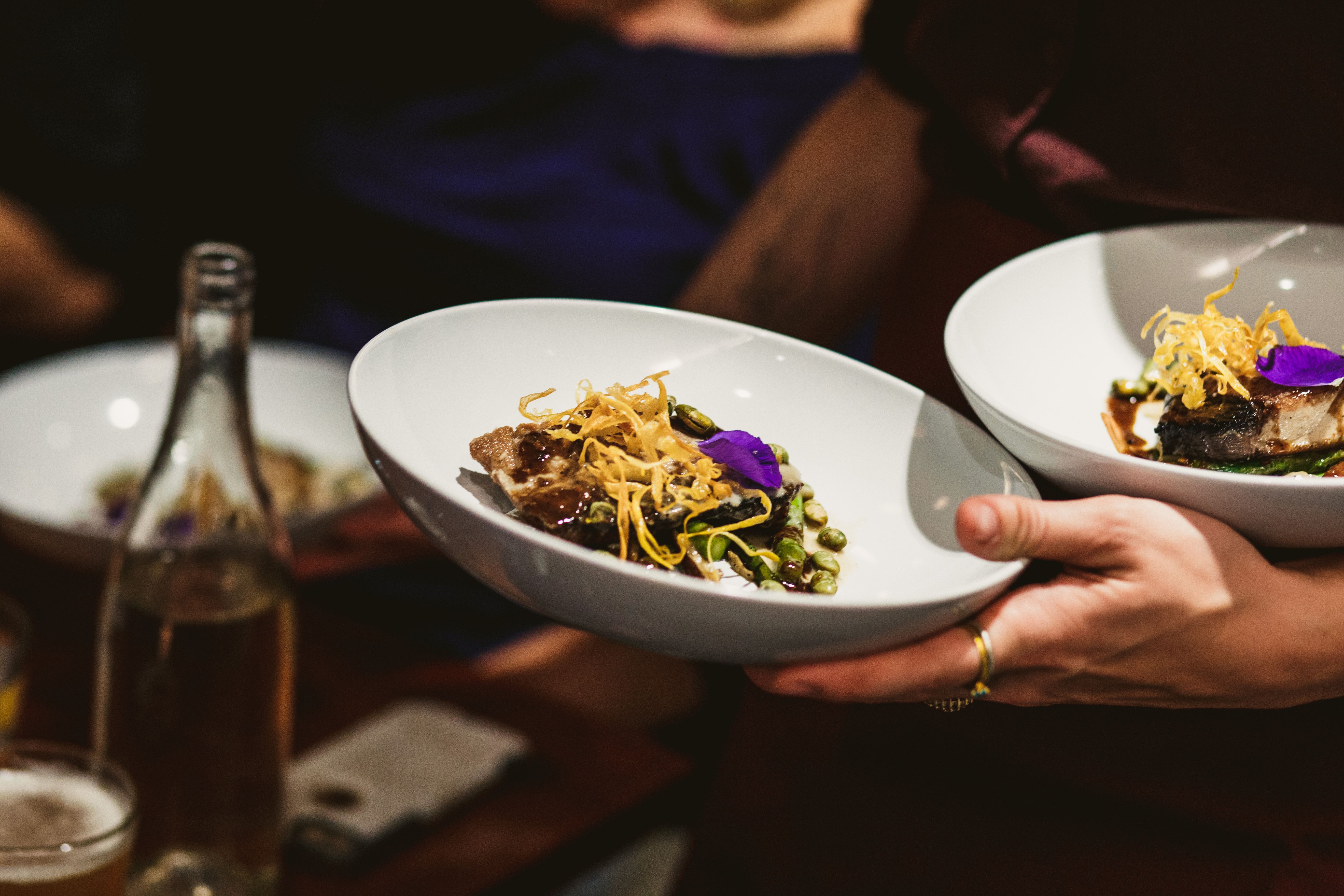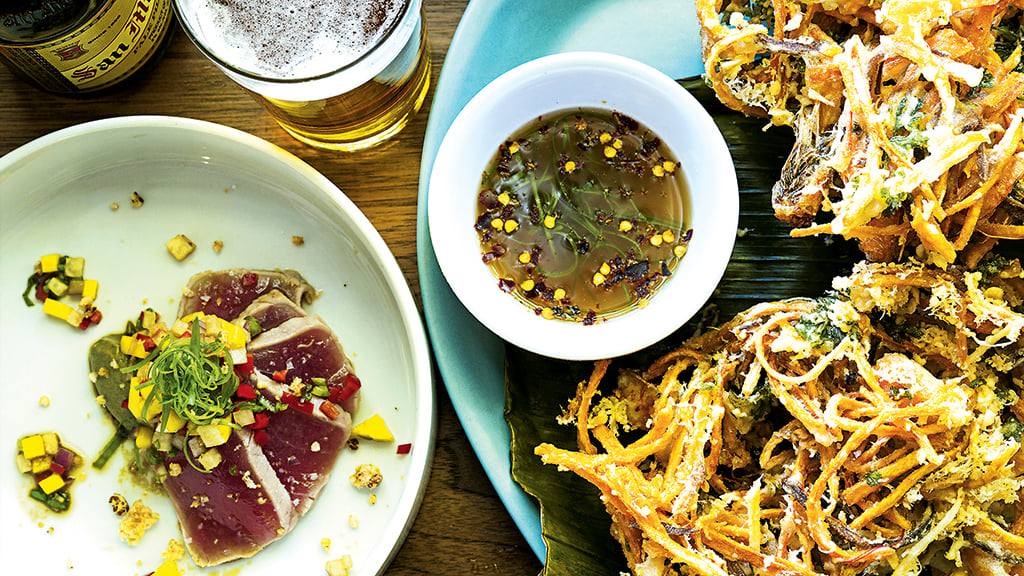Welcome to DU!
The truly grassroots left-of-center political community where regular people, not algorithms, drive the discussions and set the standards.
Join the community:
Create a free account
Support DU (and get rid of ads!):
Become a Star Member
Latest Breaking News
Editorials & Other Articles
General Discussion
The DU Lounge
All Forums
Issue Forums
Culture Forums
Alliance Forums
Region Forums
Support Forums
Help & Search
District of Columbia
Related: About this forumAt Balangay, a chef crafts ambitious Philippine food in a pop-up
Balangay1341 H St. NE, inside Bullfrog Bagels; https://www.balangaydc.com/
https://www.washingtonpost.com/food/2022/07/11/balangay-restaurant-review/
https://archive.ph/GplOx

Erwin Villarias’s great-grandfather was one of seven men who climbed into a narrow wooden boat at Cagayancillo, a small island in the Sulu Sea, and set sail in search of . . . what exactly? The historical record is unclear. More arable land? Lush forests to provide the lumber to construct balangay boats, the principal form of transportation among islanders? Maybe just a better life?
Whatever the motivation, Villarias’s ancestor and the rest of the crew came upon a pristine shoreline, the northeastern coast of Palawan, a long, slender strip of land that looks like it’s trying to flee the rest of the Philippine archipelago. The area had everything the men desired: low-lying tracts, perfect for growing rice, coconuts and other crops; abundant marine life for fishing; and virgin forests for wood. The men eventually settled the land and called it home. In 1951, their burgeoning community would be officially recognized as the municipality of Roxas, Villarias’s hometown.
On his phone, Villarias, 36, has a photo of the resolution that established a permanent marker dedicated to the pioneers who “displayed their selfless dedication, perseverance and diligence” in making Roxas what it is today. He sent me a copy. The first of the “seven brave men” mentioned in the document is his great-grandfather: Benito Cardejon.
When he started his own adventure, a pop-up restaurant inside Bullfrog Bagels on H Street NE in Washington, Villarias named it Balangay, for the type of boat that his great-grandfather used to navigate the rough seas between Cagayancillo and Roxas. The chef had never met Cardejon, but the elder was, according to one official source, a boat maker by trade. Cardejon would have used the available resources — maybe the hard wood of a doongon or barayong tree, which craftsmen cut under moonlit skies — to build seaworthy vessels that could carry goods between islands. Or even open up new worlds.
snip




gain one, lose one
Pioneering Filipino Restaurant Bad Saint Has Closed
The Columbia Heights hotspot had kept its tiny dining room closed throughout the pandemic
https://www.washingtonian.com/2022/07/11/pioneering-filipino-restaurant-bad-saint-has-closed/

In its hey day, diners lined up down the block, hours before opening, for a taste of the modern Filipino cooking at Bad Saint. But two and a half years after the pandemic first shut down its tiny dining room, the Columbia Heights restaurant served its last meal on Saturday, July 9. “To be honest, it’s hard to know quite what to say. We are overwhelmed with big feelings,” owner Genevieve Villamora wrote in an email announcing the news. She did not immediately respond to a request for comment.

The restaurant was an instant hit when it opened in 2015 under the direction of chef Tom Cunanan. It became a local and national media darling, ranking No. 2 best new restaurant in America by Bon Appetit in 2016 and earning Cunanan a James Beard award for best chef in the Mid-Atlantic in 2019.

The intimate 24-seat dining room was hit hard by the pandemic and had been offering carryout and patio seating only up until its closure. Cunanan parted ways with the restaurant in 2020. “Every day, it gets a little tougher for small, independent restaurants and food businesses to survive,” Villamora wrote in her email newsletter. She went on to name a long list of fellow restaurants that could use support.

“These restaurants – each in their own way – captured lightning in a bottle. They made delicious food from a strong, clear point of view. Their hospitality was warm, confident, and effortless. They made us feel at home. They made us feel like ourselves. Though they have long since closed their doors, they live in our memory.
We hope that Bad Saint will continue to live in your memory.”





InfoView thread info, including edit history
TrashPut this thread in your Trash Can (My DU » Trash Can)
BookmarkAdd this thread to your Bookmarks (My DU » Bookmarks)
0 replies, 736 views
ShareGet links to this post and/or share on social media
AlertAlert this post for a rule violation
PowersThere are no powers you can use on this post
EditCannot edit other people's posts
ReplyReply to this post
EditCannot edit other people's posts
Rec (0)
ReplyReply to this post